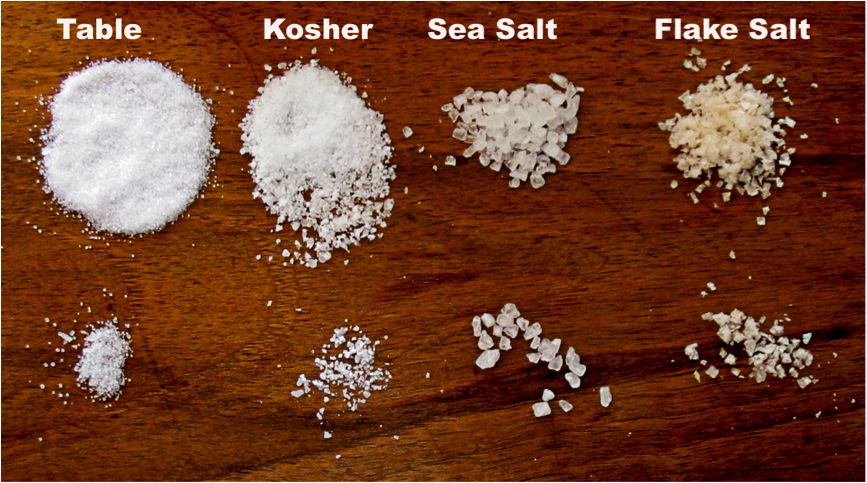Kitchen essentials are often overlooked when it comes to choosing the right ingredients for your recipe. Salt, in particular, is one of the most important ingredients to consider. In the market, you can find different types of salt. Two of the most popular are kosher salt and table salt. But what is the difference between the two?

Kosher Salt
Kosher salt is a coarse-grained salt that is commonly used in Jewish cuisine. It is called "kosher" because it is used in the process of koshering meat, which is the process of removing blood from the meat. Kosher salt has a flaky texture and is usually free of additives like iodine. It is also less dense than table salt, which means that it takes up more space per unit of weight. This makes it easier to sprinkle over food, especially meat, and helps it to adhere better.

Kosher salt is often preferred by chefs because its large grains make it easier to control the amount of salt added to a dish. Its lack of additives also makes it a great choice for those who want to avoid processed food.
Table Salt
Table salt, on the other hand, is a fine-grained salt that is commonly used in everyday cooking. It is usually fortified with iodine, which is an essential nutrient that is not found in many foods. Table salt is also more compact than kosher salt, which means that it takes up less space per unit of weight. This can make it easier to measure out and use in recipes.
Table salt is a popular choice because it is affordable and readily available. However, its fine grains can make it easy to over-salt a dish, and its additives may not be suitable for those who are trying to avoid processed food.
Which One Should You Use?
When it comes to choosing between kosher salt and table salt, it really depends on the dish you are making and personal preference. Kosher salt is great for seasoning meat and for those who want to avoid additives. Table salt is a good all-purpose salt that is suitable for everyday use and is fortified with iodine.
It is important to note that when substituting one salt for the other in a recipe, the amount used should be adjusted to account for the difference in density. Kosher salt is less dense than table salt, so you will need to use more of it to achieve the same level of saltiness.
The Bottom Line
Both kosher salt and table salt have their own unique characteristics and uses. Ultimately, the choice between the two comes down to personal preference and the dish you are making. Whatever you choose, make sure to use it in moderation to avoid over-salting your food.
